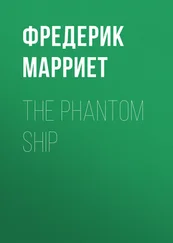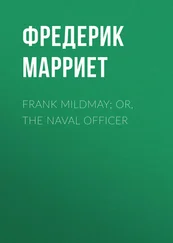Фредерик Марриет - The Pirate
Здесь есть возможность читать онлайн «Фредерик Марриет - The Pirate» — ознакомительный отрывок электронной книги совершенно бесплатно, а после прочтения отрывка купить полную версию. В некоторых случаях можно слушать аудио, скачать через торрент в формате fb2 и присутствует краткое содержание. Жанр: foreign_prose, literature_19, foreign_antique, на английском языке. Описание произведения, (предисловие) а так же отзывы посетителей доступны на портале библиотеки ЛибКат.
- Название:The Pirate
- Автор:
- Жанр:
- Год:неизвестен
- ISBN:нет данных
- Рейтинг книги:3 / 5. Голосов: 1
-
Избранное:Добавить в избранное
- Отзывы:
-
Ваша оценка:
- 60
- 1
- 2
- 3
- 4
- 5
The Pirate: краткое содержание, описание и аннотация
Предлагаем к чтению аннотацию, описание, краткое содержание или предисловие (зависит от того, что написал сам автор книги «The Pirate»). Если вы не нашли необходимую информацию о книге — напишите в комментариях, мы постараемся отыскать её.
The Pirate — читать онлайн ознакомительный отрывок
Ниже представлен текст книги, разбитый по страницам. Система сохранения места последней прочитанной страницы, позволяет с удобством читать онлайн бесплатно книгу «The Pirate», без необходимости каждый раз заново искать на чём Вы остановились. Поставьте закладку, и сможете в любой момент перейти на страницу, на которой закончили чтение.
Интервал:
Закладка:
Jonathan quitted the room without reply, and made his reappearance with the letter.
“It is a long time that I have been expecting this vessel, Jonathan,” observed Mr Witherington, unfolding the letter.
“Yes, sir, a long while; tempus fugit ,” replied the butler in a low tone, half shutting his eyes.
“I hope to God no accident has happened,” continued Mr Witherington: “my poor little cousin and her twins e’en now that I speak, they may be all at the bottom of the sea.”
“Yes, sir,” replied the butler; “the sea defrauds many an honest undertaker of his profits.”
“By the blood of the Witheringtons! I may be left without an heir, and shall be obliged to marry, which would be very uncomfortable.”
“Very little comfort,” echoed Jonathan—“my wife is dead. In caelo quies.”
“Well, we must hope for the best; but this suspense is anything but comfortable,” observed Mr Witherington, after looking over the contents of the letter for at least the twentieth time.
“That will do, Jonathan; I’ll ring for coffee presently;” and Mr Witherington was again alone and with his eyes fixed upon the ceiling.
A cousin of Mr Witherington, and a very great favourite (for Mr Witherington, having a large fortune, and not having anything to do with business, was courted by his relations), had, to a certain degree, committed herself; that is to say, that, notwithstanding the injunctions of her parents, she had fallen in love with a young lieutenant in a marching regiment, whose pedigree was but respectable, and whose fortune was anything but respectable, consisting merely of a subaltern’s pay. Poor men, unfortunately, always make love better than those who are rich, because, having less to care about, and not being puffed up with their own consequence, they are not so selfish and think much more of the lady than of themselves. Young ladies, also, who fall in love, never consider whether there is sufficient “to make the pot boil”—probably because young ladies in love lose their appetites, and, not feeling inclined to eat at that time, they imagine that love will always supply the want of food. Now, we will appeal to the married ladies whether we are not right in asserting that, although the collation spread for them and their friends on the day of the marriage is looked upon with almost loathing, they do not find their appetites return with interest soon afterwards. This was precisely the case with Cecilia, or rather, Cecilia Templemore, for she had changed her name the day before. It was also the case with her husband, who always had a good appetite, even during his days of courtship; and the consequence was, that the messman’s account, for they lived in barracks, was, in a few weeks, rather alarming. Cecilia applied to her family, who very kindly sent her word that she might starve; but, the advice neither suiting her nor her husband, she then wrote to her cousin Antony, who sent her word that he would be most happy to receive them at his table, and that they should take up their abode in Finsbury Square. This was exactly what they wished; but still there was a certain difficulty; Lieutenant Templemore’s regiment was quartered in a town in Yorkshire, which was some trifling distance from Finsbury Square; and to be at Mr Witherington’s dinner-table at six p.m., with the necessity of appearing at parade every morning at nine a.m., was a dilemma not to be got out of. Several letters were interchanged upon this knotty subject: and at last it was agreed that Mr Templemore should sell out, and come up to Mr Witherington with his pretty wife: he did so, and found that it was much more comfortable to turn out at nine o’clock in the morning to a good breakfast than to a martial parade. But Mr Templemore had an honest pride and independence of character which would not permit him to eat the bread of idleness, and after a sojourn of two months in most comfortable quarters, without a messman’s bill, he frankly stated his feelings to Mr Witherington, and requested his assistance to procure for himself an honourable livelihood. Mr Witherington, who had become attached to them both, would have remonstrated, observing that Cecilia was his own cousin, and that he was a confirmed bachelor; but, in this instance, Mr Templemore was firm, and Mr Witherington very unwillingly consented. A mercantile house of the highest respectability required a partner who could superintend their consignments to America. Mr Witherington advanced the sum required; and, in a few weeks, Mr and Mrs Templemore sailed for New York.
Mr Templemore was active and intelligent; their affairs prospered; and, in a few years, they anticipated a return to their native soil with a competence. But the autumn of the second year after their arrival proved very sickly; the yellow fever raged; and among the thousands who were carried off, Mr Templemore was a victim, about three weeks after his wife had been brought to bed of twins. Mrs Templemore rose from her couch a widow and the mother of two fine boys. The loss of Mr Templemore was replaced by the establishment with which he was connected, and Mr Witherington offered to his cousin that asylum which, in her mournful and unexpected bereavement, she so much required. In three months her affairs were arranged; and with her little boys hanging at the breasts of two negro nurses,—for no others could be procured who would undertake the voyage,—Mrs Templemore, with Coco as male servant, embarked on board of the good ship Circassian , A1, bound to Liverpool.
Chapter Three.
The Gale
Those who, standing on the pier, had witnessed the proud bearing of the Circassian as she gave her canvas to the winds, little contemplated her fate: still less did those on board; for confidence is the characteristic of seamen, and they have the happy talent of imparting their confidence to whomsoever may be in their company. We shall pass over the voyage, confining ourselves to a description of the catastrophe.
It was during a gale from the north-west, which had continued for three days, and by which the Circassian had been driven into the Bay of Biscay, that at about twelve o’clock at night, a slight lull was perceptible. The captain, who had remained on deck, sent down for the chief mate. “Oswald,” said Captain Ingram, “the gale is breaking, and I think before morning we shall have had the worst of it. I shall lie down for an hour or two; call me if there be any change.”
Oswald Bareth, a tall, sinewy-built, and handsome specimen of transatlantic growth, examined the whole circumference of the horizon before he replied. At last his eyes were steadily fixed to leeward: “I’ve a notion not, sir,” said he; “I see no signs of clearing off to leeward: only a lull for relief, and a fresh hand at the bellows, depend upon it.”
“We have now had it three days,” replied Captain Ingram, “and that’s the life of a summer gale.”
“Yes,” rejoined the mate; “but always provided that it don’t blow back again. I don’t like the look of it, sir; and have it back we shall, as sure as there’s snakes in Virginny.”
“Well, so be if so be,” was the safe reply of the captain. “You must keep a sharp look out, Bareth, and don’t leave the deck to call me; send a hand down.”
The captain descended to his cabin. Oswald looked at the compass in the binnacle—spoke a few words to the man at the helm—gave one or two terrible kicks in the ribs to some of the men who were caulking—sounded the pump-well—put a fresh quid of tobacco into his cheek, and then proceeded to examine the heavens above. A cloud, much darker and more descending than the others, which obscured the firmament, spread over the zenith, and based itself upon the horizon to leeward. Oswald’s eye had been fixed upon it but a few seconds, when he beheld a small lambent gleam of lightning pierce through the most opaque part; then another, and more vivid. Of a sudden the wind lulled, and the Circassian righted from her careen. Again the wind howled, and again the vessel was pressed down to her bearings by its force: again another flash of lightning, which was followed by a distant peal of thunder.
Читать дальшеИнтервал:
Закладка:
Похожие книги на «The Pirate»
Представляем Вашему вниманию похожие книги на «The Pirate» списком для выбора. Мы отобрали схожую по названию и смыслу литературу в надежде предоставить читателям больше вариантов отыскать новые, интересные, ещё непрочитанные произведения.
Обсуждение, отзывы о книге «The Pirate» и просто собственные мнения читателей. Оставьте ваши комментарии, напишите, что Вы думаете о произведении, его смысле или главных героях. Укажите что конкретно понравилось, а что нет, и почему Вы так считаете.












